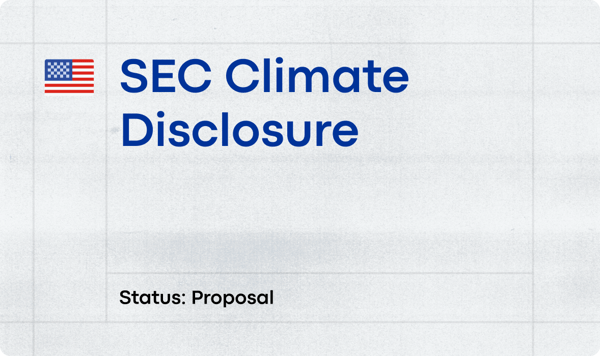Carbonfact is launching a new Digital Product Passport (DPP) feature to help apparel and footwear brands meet upcoming EU regulations and provide transparent product information to consumers. This addition makes it easy to present sustainability data to consumers – in accordance with regulatory requirements – based on the data that’s already in your platform, without complex tooling or brand-website adjustments.
Understanding Digital Product Passports
The Digital Product Passport is a digital record of a product's key characteristics throughout its lifecycle. It serves several important functions:
- Facilitates compliance with upcoming EU regulations
- Provides consumers with accessible sustainability information
- Improves supply chain visibility and traceability
- Supports circular economy initiatives by including information on repair and recycling
Please see our DPP deep dive for more information.
Regulatory Context
The EU's Ecodesign for Sustainable Products Regulation (ESPR) mandates the implementation of Digital Product Passports across various industries, including fashion and textiles. While the full implementation is expected between 2027 and 2030, many brands are beginning to prepare for these regulatory changes.
Our DPP feature is developed with these upcoming requirements in mind, aiming to help brands adapt to the new regulatory landscape well ahead of time.
Feature Overview
Carbonfact’s DPP feature creates a product page that is accessible to consumers via a unique URL or QR code. Key aspects of the feature include:
- Data Integration: The DPP utilizes data already present in your Carbonfact account, minimizing additional data entry requirements.
- Accessible Design: The page presents information in a clear, easy-to-understand format for consumers.
- Hosted Solution: Each DPP is hosted on a Carbonfact URL (e.g., www.carbonfact.com/dpp/product-id), eliminating the need for complex website integrations or extra tooling.
- QR Code Functionality: The feature includes the ability to generate QR codes linking to the product's DPP, which can be used on physical labels or marketing materials.
Included Data Fields
The DPP pages include several key sustainability data points:
- Product title and reference code (SKU)
- Product category
- Environmental impact metrics (carbon footprint, water usage, energy consumption)
- Product composition and materials
- Country of origin
- Manufacturing processes and assembly information

Implementation Process
Publishing a DPP for a product only takes a few seconds. To get started, follow these steps:
- Ensure your product data in Carbonfact is current and comprehensive.
- Under the “Collect” section, access “Products”.
- Click on a specific product. In the top right, next to the Framework drop-down, you’ll see a “Share” button. By default, products are on Private visibility, but if you toggle it to Public, a link will appear – anyone who has it, can access it.
- Review the generated link for DPP accuracy.
- Publish the DPPs and utilize the provided URLs or QR codes for distribution. QR codes can be downloaded and, for example, printed onto a product label.
Future Developments
While the initial release focuses on core sustainability data to meet immediate regulatory needs, future fields may include:
- Care instructions and repairability information
- Product lifecycle dates
- Identification of any controversial substances
As DPP regulation comes closer to its final, released form, we’ll plan to update and include any newly required fields wherever possible.
Preparing for Regulatory Changes
The implementation of Digital Product Passports represents a significant step in adapting to evolving EU regulations. This technology aligns with Carbonfact's "measure once, report everywhere" approach, which aims to streamline environmental reporting processes.
This methodology has broader implications beyond ESPR compliance. The same dataset powering DPPs can be utilized for other regulatory requirements, such as the Corporate Sustainability Reporting Directive (CSRD). This means that, if you maintain one robust database, you’re always ready for any changes in environmental reporting.







 Lidia Lüttin
Lidia Lüttin


 Martin Daniel
Martin Daniel